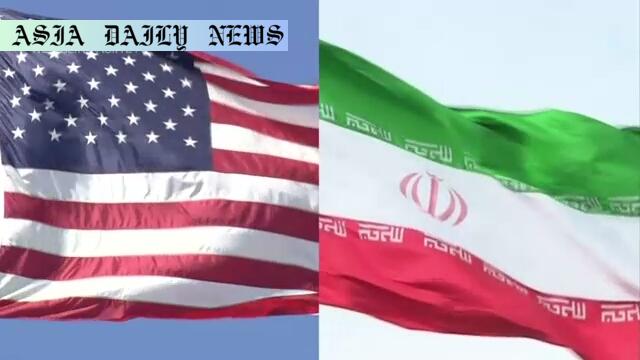US-Iran nuclear talks: Trump anticipates ‘good news’ following the fifth round of diplomatic discussions on nuclear development.
US President Donald Trump expressed optimism over the outcome of US-Iran nuclear talks.
Delegations from the US and Iran said significant progress has been achieved during the fifth round of discussions in Rome.
Discussions focused on resolving uranium enrichment differences, a major point of contention.
Trump hinted at potential positive updates within the next two days.

US-Iran Nuclear Talks Enter the Fifth Round
During the fifth round of diplomatic negotiations held in Rome, Italy, progress appears to have been made between the United States and Iran over long-standing disagreements regarding Iran’s nuclear development. These talks were led by US Special Envoy to the Middle East, Steve Witkoff, and Iranian Foreign Minister, Abbas Araghchi. Both delegations left the meeting recognizing tangible advancements but acknowledged that significant work remains to address contentious issues like uranium enrichment protocols.
Trump’s Optimism Brings Hope Amid Challenges
Speaking to journalists in New Jersey shortly after the discussions, US President Donald Trump shared his enthusiasm, stating that he expected “good news” from the ongoing talks. His statement highlighted a sense of near-term breakthroughs, despite persistent hurdles. Trump emphasized that the negotiations had seen “real progress, serious progress,” without revealing specific details. He alluded to a possible announcement, whether positive or negative, in the coming days. For international observers, Trump’s optimistic tone could signal a significant realignment in US-Iran relations.
The Key Issue: Uranium Enrichment Disparities
At the heart of these discussions lies the contentious issue of Iran’s uranium enrichment activities. While the US insists on tighter restrictions to prevent nuclear weapon development, Iran has continuously maintained that its nuclear program is intended for peaceful purposes, such as energy production. Narrowing this gap remains a delicate task for both parties, as any agreement must satisfy Iran’s sovereignty claims while ensuring global security concerns are adequately addressed. Recent talks also resonate with broader international efforts to uphold nonproliferation commitments.
Diplomatic Context and Broader Implications
The renewed push for diplomacy comes amid Trump’s pressing need for a foreign policy win. With ceasefire negotiations in the Gaza Strip and Ukraine hitting roadblocks, advancing nuclear talks with Iran positions the US administration as a proactive force for peace and stability. However, diplomatic progress with Iran isn’t just a bilateral issue; it resonates throughout the Middle East and beyond, shaping alliances, trade linkages, and global perceptions of US foreign policy efficacy. A successful agreement could stabilize regional tensions and improve broader US-Iran interactions.
What Lies Ahead?
Despite signs of progress, uncertainty looms over the ultimate outcome of these talks. Neither delegation provided a definitive timeline for resolving the uranium enrichment deadlock, and both parties remain wary of overpromising. The coming days will be crucial in determining whether the optimism expressed by President Trump will lead to a breakthrough agreement or simply extend the long series of inconclusive meetings. Experts highlight the importance of building trust between the two nations as a cornerstone for achieving lasting solutions.



Commentary
Trump’s Optimism and the Challenges of Diplomacy
President Donald Trump’s hopeful tone regarding the ongoing US-Iran nuclear talks is certainly a notable development in the realm of international relations. His remarks come at a time when global stability requires urgent and collaborative efforts. While his optimism is commendable, seasoned observers understand that diplomacy with Iran involves careful navigation of complex historical, political, and technical challenges.
A High-Stakes Negotiation
Negotiating Iran’s nuclear ambitions touches on more than just bilateral ties; it’s a delicate balance of power in the Middle East and a test of global nonproliferation norms. The gap between the US’s stringent demands on uranium enrichment and Iran’s insistence on its peaceful nuclear program is not easily bridged. Nevertheless, it is encouraging that both nations are committed to dialogue. Achieving an agreement would not only mitigate regional and international tensions but also enhance collective security.
The Broader Geopolitical Context
The significance of these talks extends far beyond nuclear issues alone. Success in these negotiations could pave the way for improved US-Iran relations, influencing key areas such as trade policies, Middle Eastern stability, and global alliances. On the flip side, a failure could exacerbate existing tensions, leading to sanctions escalation and potentially destabilizing the region further.
Looking Ahead with Cautious Optimism
As these high-stakes discussions progress, stakeholders should remain cautiously optimistic. While Trump’s words of progress inspire hope, they must translate into tangible, verifiable agreements for lasting impacts. The road ahead is undoubtedly challenging, but strategic patience and mutual goodwill could ultimately lead to a brighter chapter in US-Iran relations, benefiting not just these two nations but the world at large.